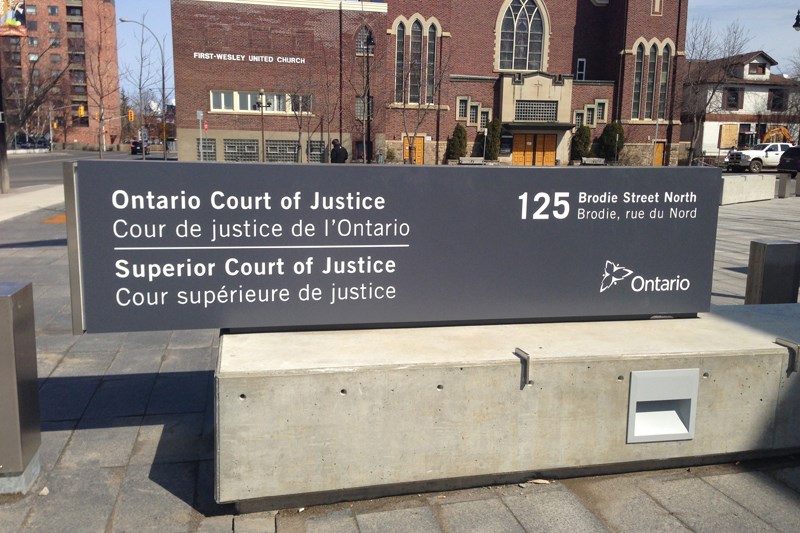THUNDER BAY - A judge will determine if Ricky Lionel Keewasin, who was convicted of aggravated sexual assault and sexual interference, will be deemed a dangerous offender, though both the Crown and defense agree he should be the subject of a 10 year long-term supervision order.
In a Thunder Bay Courtroom on Tuesday, Crown attorney Rob Kozak and defense attorney, Francis Thatcher, presented a joint sentencing submission before Justice Danial Newton.
Both Kozak and Thatcher are asking for an eight year sentence less time served, as well as a 10-year long-term supervision order. With pre-sentenced custody credited at 2,424 days, Keewasin would serve an additional 496 days in custody or 1.36 years.
The long-term supervision would start immediately following the conclusion of that sentence. However, the Crown and defense differ on what the designation of that supervision should be, with Kozak asking for a dangerous offender designation and Thatcher asking for a long-term offender designation.
Under the criminal code of Canada, a dangerous offender designation is applied to an individual if the court finds he or she demonstrates a pattern of repetitive behaviour and a failure to restrain that behaviour that could lead to death, injury or harm to others. An individual’s behaviour must also demonstrate a substantial degree of indifference to consequences and be aggressive in nature.
The crimes may also be brutal in nature and an offender’s behaviour is unlikely to be inhibited, or the offender has shown a failure to control sexual impulses.
A long-term offender designation applies to offenders who pose a high risk of committing future sexual offences but do not meet the provisions of a dangerous offender designation. The criteria still includes the high risk of an offender to reoffend causing death, injury, or serious harm.
A long-term supervision order can be imposed by the court to either a dangerous offender or a long-term offender and he or she will be under supervision in accordance with the Corrections and Conditional Release Act.
Keewasin was first charged on Oct. 26, 2013 with aggravated sexual assault, sexual interference, breach of recognizance, and breach of probation and he was convicted on Aug. 30, 2016. A publication ban is in place on details of the case to protect the identity of the victim.
Following the conviction, the Crown submitted an application for a dangerous offender designation after receiving approval from the Ministry of the Attorney General. Keewasin was evaluated by a forensic psychologist and the findings were presented during a hearing in November 2017.
The testimony of the forensic psychologist was one of the points of contention for Thatcher, who argued the findings did not appear to take into account that Keewasin would still be serving time in custody and not be released immediately.
Thatcher argued further that Keewasin has done well under strict supervision in the past and that a dangerous offender designation appears reserved for anti-social behavioral disorders that cannot be treated, while long-term offender designation is for disorders that can be treated.
Kozak argued the crimes for which Keewasin was convicted were not an isolated incident and based on the opinion of the forensic psychologist, he has exhibited repetitive behaviour and a failure to restrain his behaviour, which could result in the death, injury, or severe psychological damage to other people.
He also cited persistent aggressive behaviour on the part of Keewasin and indifference with respect to consequences of his behaviour.
“This simply isn’t a one-off for Mr. Keewasin,” Kozak said. “It’s not surprising these opinions have been rendered.”
Keewasin did not speak when provided an opportunity by the court. He has faced legal troubles in the past and was convicted in 2009 of aggravated assault and was sentenced to four years and 28 days in custody.
Justice Newton will hand down his verdict in early June.
